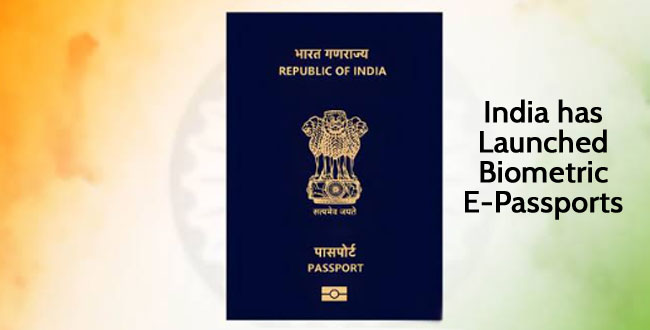In a landmark move to modernize its travel infrastructure, India has launched biometric e-passports across 13 cities, joining over 120 nations in adopting cutting-edge technology to combat fraud and expedite border crossings. This initiative, part of the Passport Secrecy Programme 2.0, underscores India’s commitment to aligning with global security standards while advancing its “Digital India” vision. With embedded encryption and seamless integration into international systems, the e-passport rollout marks a transformative leap for Indian travelers and immigration efficiency.
Phase 1 Rollout: Strategic Cities and Future Expansion
The initial phase targets key metropolitan and regional hubs, including Delhi, Chennai, Hyderabad, Surat, Jaipur, and Bhubaneswar, with plans for nationwide coverage by mid-2025. The phased approach prioritizes high-demand regions, ensuring robust testing before scaling. Jammu and Shimla’s inclusion highlights efforts to enhance accessibility in border and hilly areas, while Raipur and Ranchi reflect growing economic mobility in central and eastern India.
Insight: India’s rollout mirrors strategies seen in the EU’s 2019 e-passport expansion, which prioritized capital cities before rural regions. A Ministry of External Affairs (MEA) spokesperson noted, “This phased deployment allows us to refine systems while maintaining service continuity.”
Technical Innovation: Security Meets Global Compliance
Each e-passport features a contactless RFID chip embedded in its polycarbonate back cover, storing biometric data (fingerprints, iris scans), demographic details, and a digital signature. Advanced safeguards include:
Basic Access Control (BAC): Encrypts data transmission between the chip and readers.
Extended Access Control (EAC): Prevents unauthorized cloning or eavesdropping, adhering to International Civil Aviation Organization (ICAO) guidelines.
Tamper-Evident Design: Laser-engraved personalization ensures physical forgery is detectable.
Case Study: Germany’s 2005 e-passport adoption reduced identity fraud by 60% within five years. India’s encryption protocols, developed in partnership with IIT Madras, aim to surpass these benchmarks.
Domestic Manufacturing & Streamlined Processes
Produced at the India Security Press (ISP) Nashik, a 114-year-old institution renowned for currency printing, the e-passports align with the “Make in India” initiative. ISP’s ₹785 crore upgrade includes semiconductor fabrication units, reducing reliance on foreign vendors.
Applicants follow the existing Passport Seva Portal process, with no fee hikes reported. Biometric enrollment at 523 Passport Seva Kendras (PSKs) now integrates facial recognition alongside fingerprints, a shift reflecting lessons from Singapore’s 2018 system overhaul.
Global Interoperability and Traveler Benefits
E-passport holders gain access to automated e-gates at ICAO-compliant airports, such as Dubai’s Smart Tunnel and the UK’s ePassport gates. Trials at Delhi’s Indira Gandhi International Airport show processing times reduced from 90 seconds to 12 seconds—a 87% efficiency gain.
Statistic: A 2023 ICAO report notes that 94% of member states now accept e-passports, with automated borders cutting average wait times by 40%.
Transition Strategy: No Mandatory Replacement
Legacy passports remain valid until expiry, avoiding public burden. The MEA encourages voluntary adoption during renewals, mirroring Canada’s 2013–2019 transition model. Early adopters include frequent travelers and corporate professionals, with PSKs reporting a 35% uptake in e-passport requests since June 2024.
Future Roadmap: Sustainability and AI Integration
By 2026, India plans to introduce blockchain-based verification and AI-driven anomaly detection, positioning itself as a leader in next-gen travel documents. Pilot projects for QR-code visas and digital health credentials are also underway, signaling a holistic reimagining of border security.
 Digital Tech Byte Latest Technology News
Digital Tech Byte Latest Technology News





